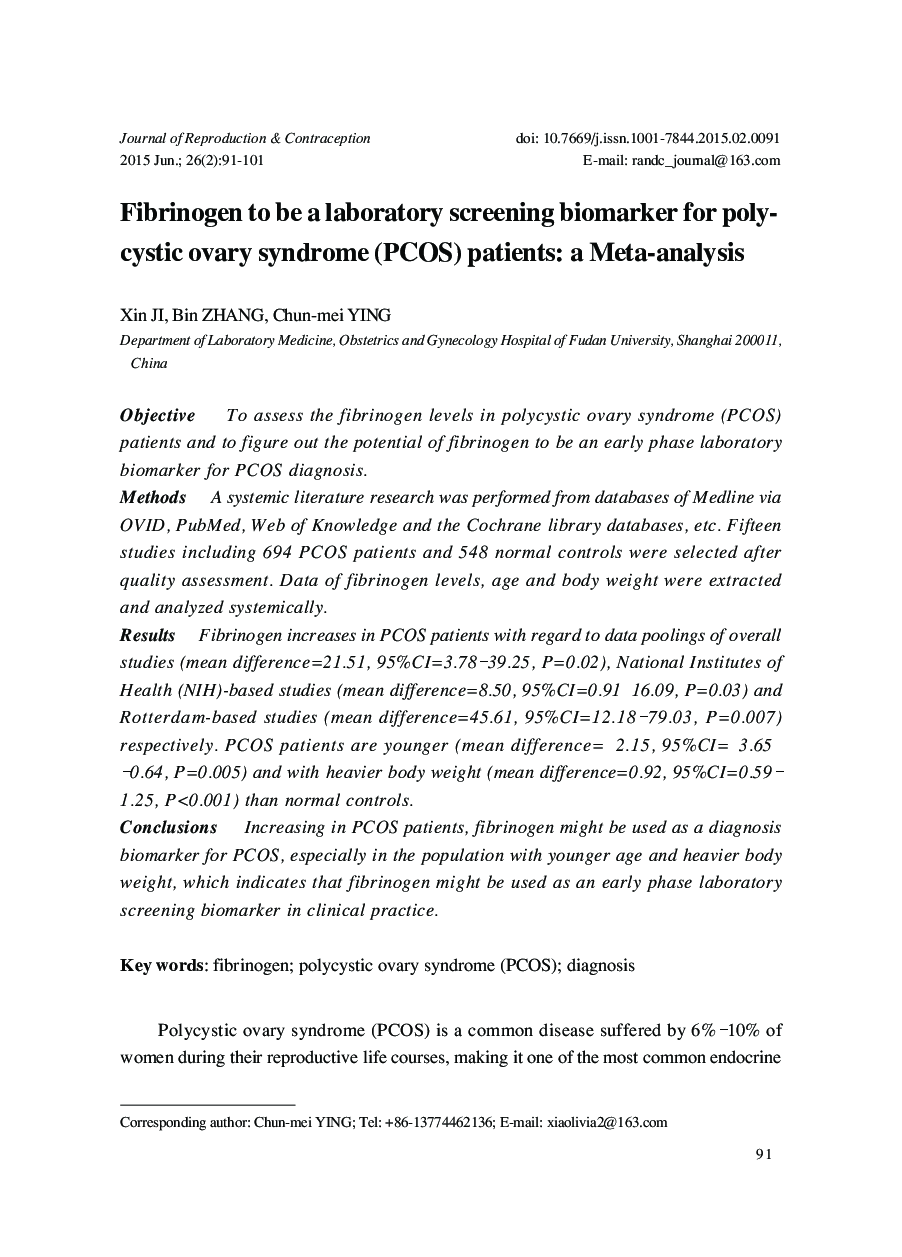| Article ID | Journal | Published Year | Pages | File Type |
|---|---|---|---|---|
| 3965614 | Journal of Reproduction and Contraception | 2015 | 11 Pages |
ObjectiveTo assess the fibrinogen levels in polycystic ovary syndrome (PCOS) patients and to figure out the potential of fibrinogen to be an early phase laboratory biomarker for PCOS diagnosis.MethodsA systemic literature research was performed from databases of Medline via OVID, PubMed, Web of Knowledge and the Cochrane library databases, etc. Fifteen studies including 694 PCOS patients and 548 normal controls were selected after quality assessment. Data of fibrinogen levels, age and body weight were extracted and analyzed systemically.ResultsFibrinogen increases in PCOS patients with regard to data poolings of overall studies (mean difference=21.51, 95%CI=3.78–39.25, P=0.02), National Institutes of Health (NIH)-based studies (mean difference=8.50, 95%CI=0.91–16.09, P=0.03) and Rotterdam-based studies (mean difference=45.61, 95%CI=12.18–79.03, P=0.007) respectively. PCOS patients are younger (mean difference=–2.15, 95%CI=–3.65––0.64, P=0.005) and with heavier body weight (mean difference=0.92, 95%CI=0.59–1.25, P<0.001) than normal controls.ConclusionsIncreasing in PCOS patients, fibrinogen might be used as a diagnosis biomarker for PCOS, especially in the population with younger age and heavier body weight, which indicates that fibrinogen might be used as an early phase laboratory screening biomarker in clinical practice.
